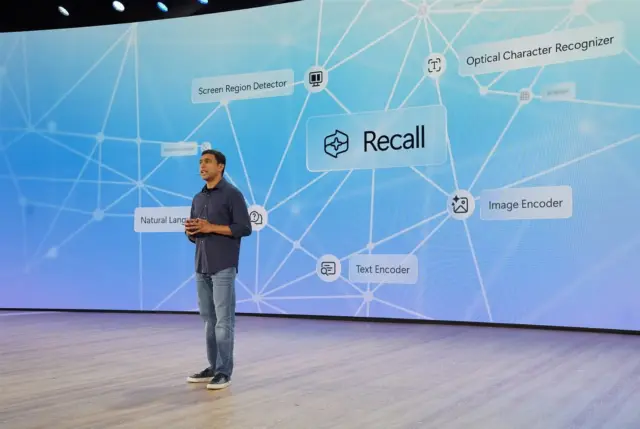
After facing significant delays and intense scrutiny over privacy and security concerns, Microsoft has finally begun rolling out its controversial Recall feature. Available exclusively on new Copilot+ Windows 11 PCs, Recall is designed to offer users a “photographic memory” of their computer activity, allowing them to easily search and retrieve past information they’ve viewed. However, the feature’s underlying mechanism – continuous screenshot capture – has ignited a firestorm of criticism, with many labeling it a potential privacy nightmare.
Recall’s premise is straightforward: it periodically takes snapshots of your active screen, creating a visual timeline of your digital life. Users can then use natural language to search this timeline to find documents, websites, emails, or anything else they’ve previously seen on their screen. Microsoft positions this as a powerful productivity tool, citing data suggesting users feel overwhelmed by information and struggle to locate past content.
The initial announcement of Recall in May 2024 was met with immediate backlash from security researchers and privacy advocates. Concerns centered on the vast amount of sensitive data that could be captured – potentially including passwords, financial details, and confidential communications – and the risk of this data being exposed if the system were compromised. Critics quickly drew parallels to spyware, highlighting the potential for misuse by malicious actors or even those with physical access to a user’s device.
In response to the outcry, Microsoft initially paused the broad rollout of Recall, shifting it to a preview available only to Windows Insiders. This delay allowed the company to address some of the most pressing security and privacy concerns. Over several months, Microsoft implemented crucial safeguards aimed at mitigating the risks.
One of the most significant changes is making Recall strictly opt-in. Unlike the initial plan where it might have been enabled by default, users must now actively choose to turn on the feature during the setup of their Copilot+ PC. Furthermore, accessing the Recall timeline and changing its settings requires Windows Hello authentication, leveraging biometric data like facial recognition or fingerprint scanning for an added layer of security.
Microsoft also emphasizes that Recall’s snapshots and associated data are stored and processed locally on the user’s device. The company states that this data is not sent to Microsoft’s servers or shared with third parties. To enhance security further, the data is encrypted, with encryption keys protected by a Virtualisation Based Security hypervisor and the Trusted Platform Module (TPM) chip on Copilot+ PCs. Microsoft security executives have stated that this architecture makes Recall “the most secure experience in Windows.”
Users also gain more control over what Recall captures. The feature includes automatic filtering to help prevent the capture of sensitive information like passwords and financial details, although some reports indicate this filtering isn’t always perfect. Users can also manually exclude specific applications or websites from being included in the snapshots. Options to pause snapshot collection or delete specific snapshots or time ranges from the timeline are also available.
Despite these implemented safeguards, some security experts remain cautious. The sheer volume of data collected still presents a tempting target for sophisticated malware. While local storage and encryption reduce the risk, a determined attacker who gains deep access to a system could potentially still access the Recall database. The requirement of a Windows Hello PIN as a fallback authentication method also raises concerns, as users often use simple PINs that might be easily compromised or shared.
The rollout of Recall is happening gradually through the April 2025 Windows non-security preview update on Copilot+ PCs. This phased approach allows Microsoft to monitor for any unforeseen issues in a wider real-world environment. Alongside Recall, Microsoft is also launching other AI-powered features on Copilot+ PCs, including an improved Windows Search that uses natural language and a “Click To Do” feature that allows for quick actions on screen content.
The launch of Recall underscores the ongoing tension between pushing the boundaries of AI-powered features and ensuring user privacy and security. While Microsoft has taken steps to address the initial widespread criticism, the success and public acceptance of Recall will ultimately depend on its real-world performance, the effectiveness of its safeguards against evolving threats, and Microsoft’s continued commitment to transparency and user control.










